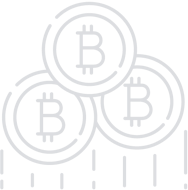
Luven Diagnostic - 고유 암 진단 기술
우리 회사의 과학자에 의해 생성 된 LUVEN 선별 검사 방법은 조직 검사 만 비교 최대 96 %의 정확도로 초기 단계에서 암을 감지합니다. 기존 진단 기술의 어느 것도 이러한 높은 진단 정확도가 없습니다. LUVEN 기술은, 따라서, 초기 단계에서 질병을 진단의 발전을 방지하기 위해 수천명의 사람들에게 기회를 제공 할 수 있습니다.
STO/ICO기본정보
Claim this listing and publish updates.
기본정보
| 플랫폼 | Ethereum |
|---|---|
| 타입 | ERC20 |
| 참가가능화폐 | ETH, BTC |
| 유통량/발행량 | 불분명 |
| KYC | 불분명 |
| 제한 구역 | 불분명 |
| 웹사이트 | 홈페이지 |
| 백서 | 다운로드 |
보너스
- preICO 1st day - 30%
- preICO 1st week - 25%
- preICO 2nd week - 20%
- preICO 3d week - 15%
- ICO 1st week - 10%
개요
The LUVEN screening test method created by scientist of our company detects cancer at its early stages with the accuracy of up to 96% only comparable to biopsy. None of the existing diagnostic techniques has such a high diagnostic accuracy.The LUVEN technology allows to diagnose the disease at its early stages, thus, giving a chance to thousands of people to prevent its further development.For more than 20 years the Ukrainian scientists have been developing a diagnostic method based on cyto-morphological and cyto-biophysical properties of the buccal epithelial cells. In 2004 at Fenix Cancer Research Center, they continued their research and, finally, came up and implemented an experimental method. A new method of biomaterial analysis allowed to establish a cancer diagnosis at its early stages and to assess predisposition to cancer. A great success in this medical field opened a door to new possibilities,including cancer prevention and therapy. The longstanding scientific research in this field culminated in development of The Luven diagnostic system.
Why is it critical to detect cancer in its early stage?
Around 10 mln people worldwide are annually diagnosed with cancer, with every third patient dying from it. One of the main reasons of such a high mortality rate is late diagnosis.
According to statistics:
- after treatment in stage 1 cancer — around 93% of patients survive;
- stage 2 cancer — around 75% survive;
- stage 3 cancer — 55% survive;
- stage 4 cancer — only 13% survive; This is why one should get a check-up as often as possible, thus preventing the disease progression.Regardless of the rapid development of modern medicine and biology cancer, annually, takes millions of human lives. One cancer patient, worldwide, dies from this disease every 30 seconds.
The key to successful cancer treatment is early diagnosis.
Our History
The development of this method started in early 1983 at the research institute, chair for genetics. Based on the cellular theory by Rudolf Vichow, a team of scientists was working on a diagnostic method and studying buccal cells. Ms. Galina Shchukina, a genetic scientist and cytologist, was at the head of the scientific research. She conducted an in-depth study of scientific papers describing a new biophysical concept of the gene activity regulation based on the role of relationship between homologous chromosomes and genome. Together with Mr. Alexander Shchukin, a nuclear physicist, they invented an ion trap allowing to estimate bioelectric charge of cells. Further research and studies of this concept laid the basis for a new diagnostic method born in 2004, according to which any changes in the human body reflect on cells, including buccal epithelial cells. It was the first milestone in the development of LUVEN a unique diagnostic and treatment system. As of today, this method allowed to collect statistical data on tests of more than twenty thousand of patients.
Why is it lucrative?
Cancer research is an acute social problem, in view of this they cast a veil on profits of medical companies. However, in-vitro diagnostics, and particularly cancer diagnostics, is a huge and most rapidly developing sector, with the potential global market of DNA cancer tests worth about $20 bn.Unlike the majority of projects involving ICO, our company has already completed 90% of the whole thing. The presale period starts on November 15 until December 6, 2017. The token sale is planned from January 15 to February 28, 2018.